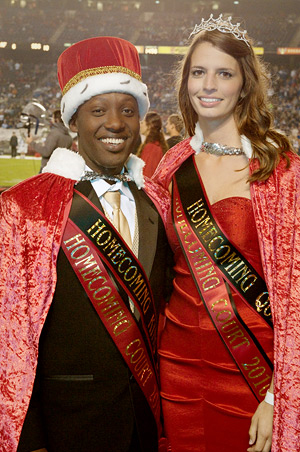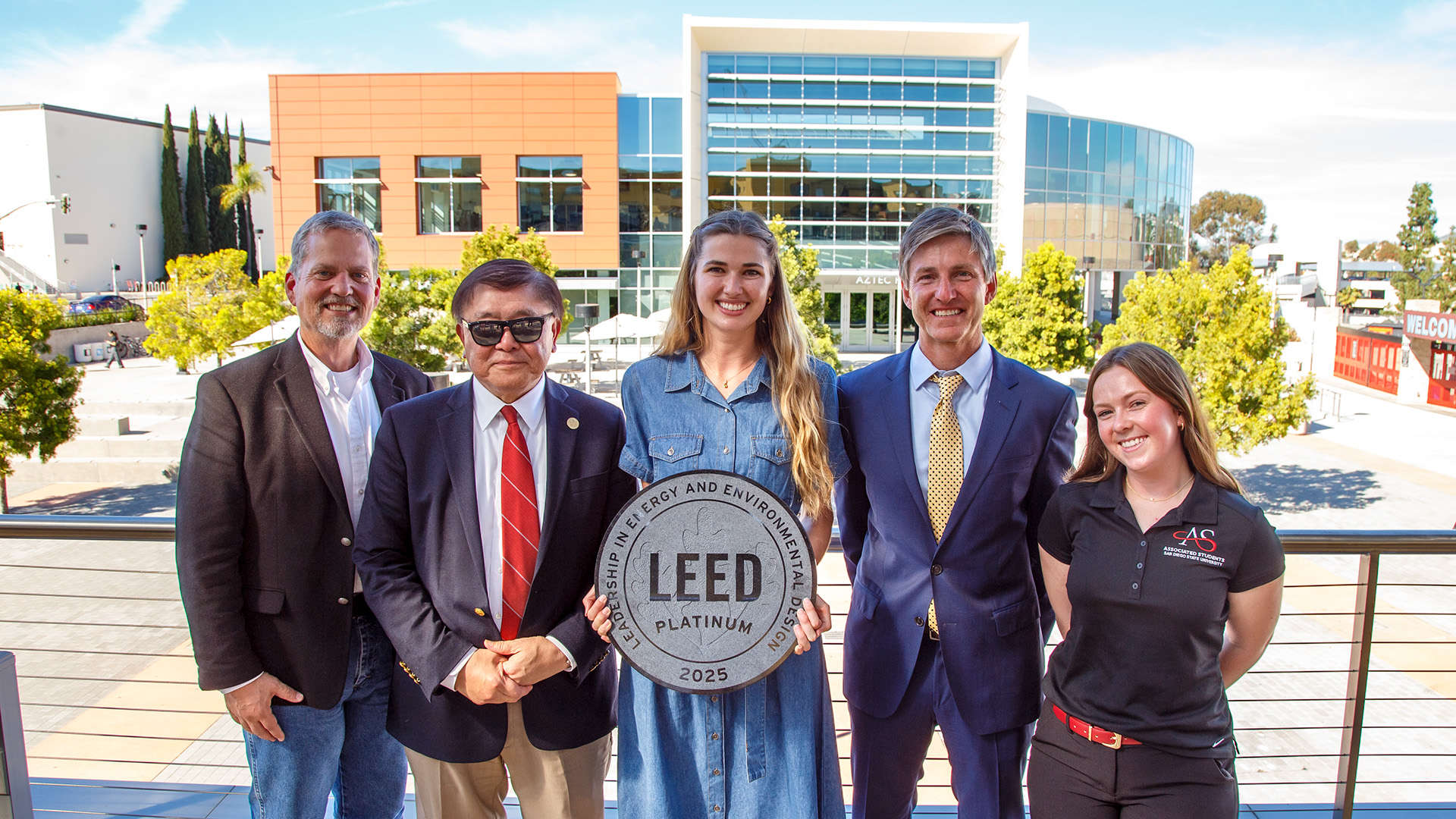Excitement Begins for New King and Queen
Homecoming king Isidore Niyongabo and queen Sadie Eisley discuss their new roles.

Their reign has just begun, but Isidore Niyongabo and Sadie Eisley are looking forward to their yearlong roles as homecoming king and queen, respectively. In the coming weeks, they'll plan a student service project as part of their roles as king and queen.
The two were crowned during the homecoming football game last month at Qualcomm Stadium. Eisley was nominated by SDSU Mortar Board, while SDSU’s American Sign Language Club nominated Niyongabo.
While many assume that the selection of the homecoming court is a popularity contest, it couldn't be farther from the truth. In order to qualify, student nominees must belong to at least one campus organization. Additionally, other members of the organization must be so impressed with the candidate that they nominate them to represent the group.
This year, 26 student organizations nominated students who they felt represented the mission, goals and ideals of their organization and the entire SDSU student body.
All members of the court are chosen based on scholastic achievement, campus involvement and community service—and a desire to leave the campus better than when they arrived.
Long way from home
Isidore Niyongabo grew up in Gasorwe, a farm village in the small country of Burundi, in central-east Africa, where an illness left him deaf at the age of 10. He attended a school for the deaf in Burundi, and after immigrating to the U.S. at the age of 24, he attended Ohlone College in Fremont, Calif., before enrolling at SDSU in fall 2009.
Niyongabo is a psychology major with a minor in human biology. A founding father and member of the Phi Delta Theta fraternity at SDSU, he also is co-chair of the SDSU Student Disability Advisory Board.
To promote awareness of deaf culture at SDSU and provide an environment where deaf and hearing students can practice their language skills and learn together, he created the American Sign Language (ASL) Club on campus. The club has tripled in size through his efforts to get others involved. In addition to his SDSU activities, he works with San Diego Youth Service to help at-risk deaf and hard-of-hearing youth.
Providing an enabling environment
“For the dominant hearing culture, and especially to people who are in charge of education, specifically to those who are trying to take away our precious language and trying to fix our ears, I would like them to appreciate us, see what we can do without ears, understand that we have a language and respect it,” Niyongabo said.
“They need to know that everyone can become disabled when placed in a disabling environment, for example when you are placed in a world where nobody understands your language. It is important to shift from a pathological perspective of disability to an enabling perspective. We all can be successful when we are provided an enabling environment, regardless of our disability.”
Niyongabo—who is fluent in ASL, English, French, Uganda Sign Language, Burundi Sign Language and Kirundi—said he is proud to be the first deaf homecoming king in a large public university.
A well-rounded individual
Sadie Eisley journalism and media studies major with a minor in social work. She is very involved on campus in organizations such as the PSFA Civil Core, Rotaract and SDSU Ambassadors. She also volunteers in the community as a mentor to kids in foster care and helps out at a local adoption agency—and she plans to pursue a career in the field of international adoption.
Eisley says she joined her first campus organization as a freshman, and her growing involvement taught her an important lesson about time management.
“I’m attached to my planner,” she said, pointing to pages filled with tidy, readable reminders and schedules. “I write everything down and never double-book. Everything I’ve joined, I’m really dedicated to, so I make sure I can devote myself to it 100 percent.”
What’s the best thing about being homecoming queen?
“Being able to represent SDSU and show that it’s important to be well-rounded, involved and it’s more than just academics,” Eisley said.



